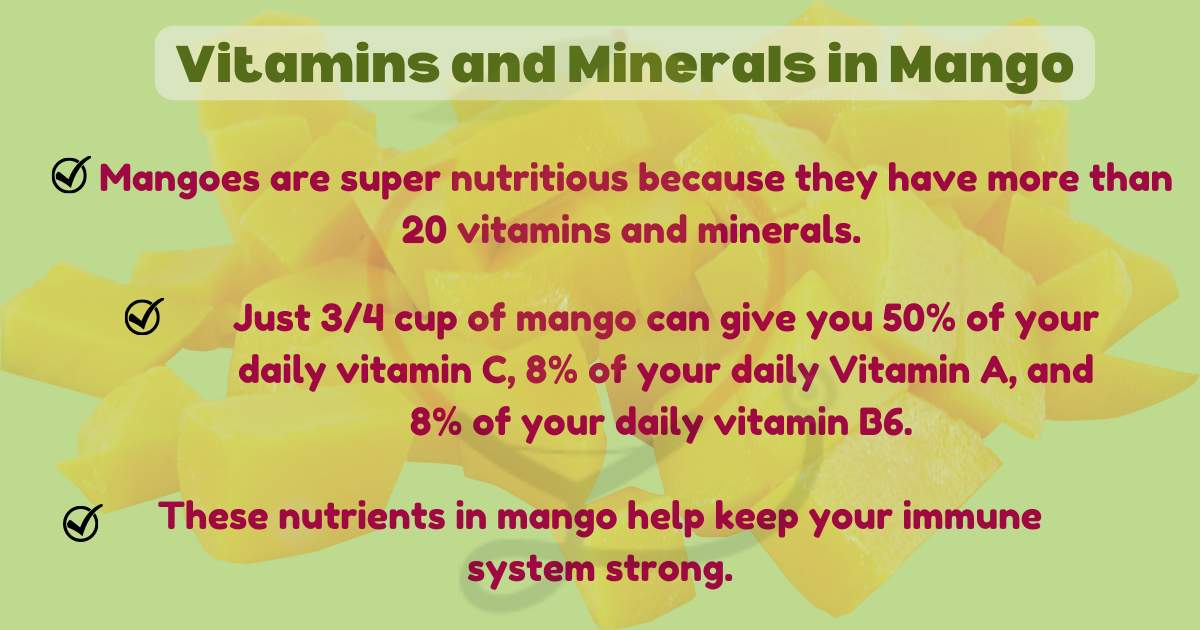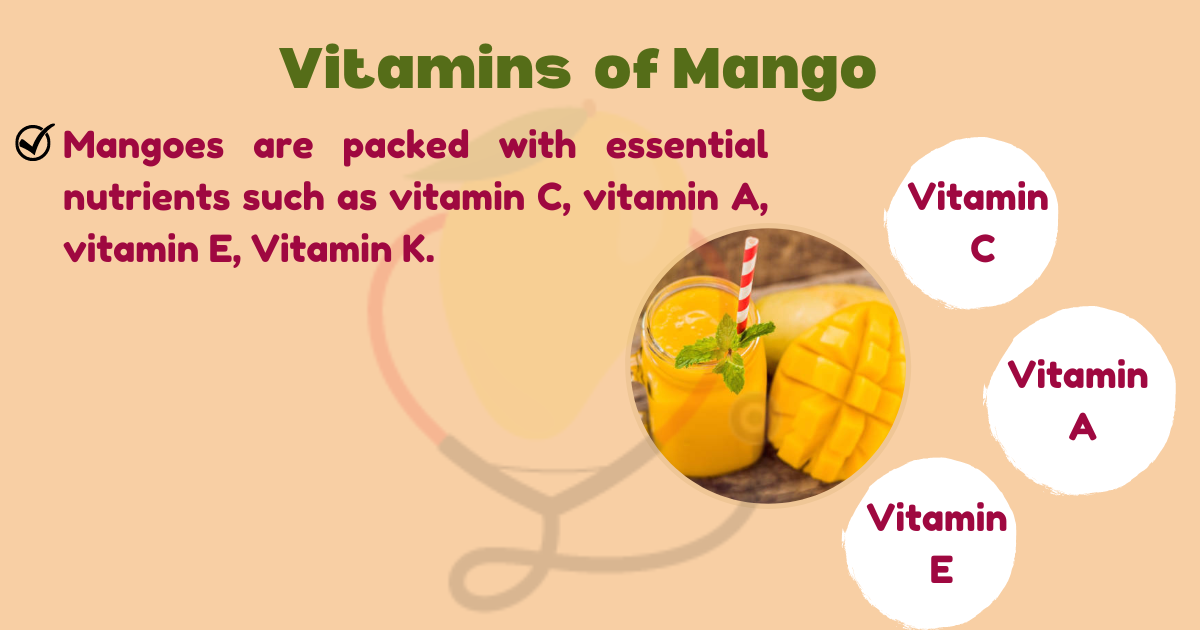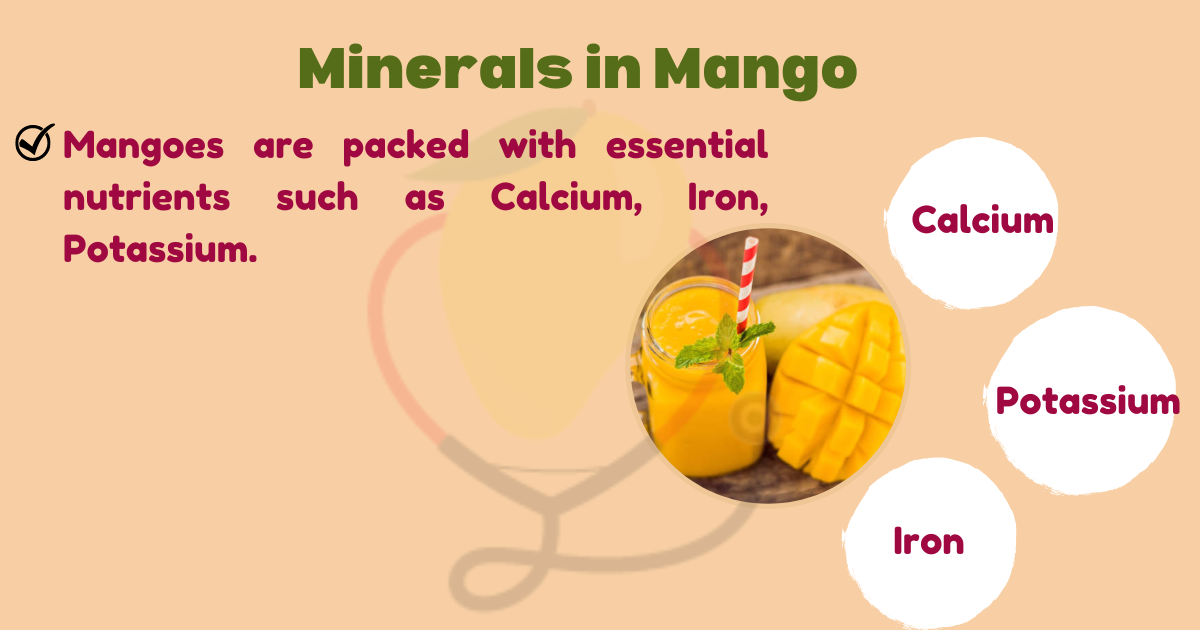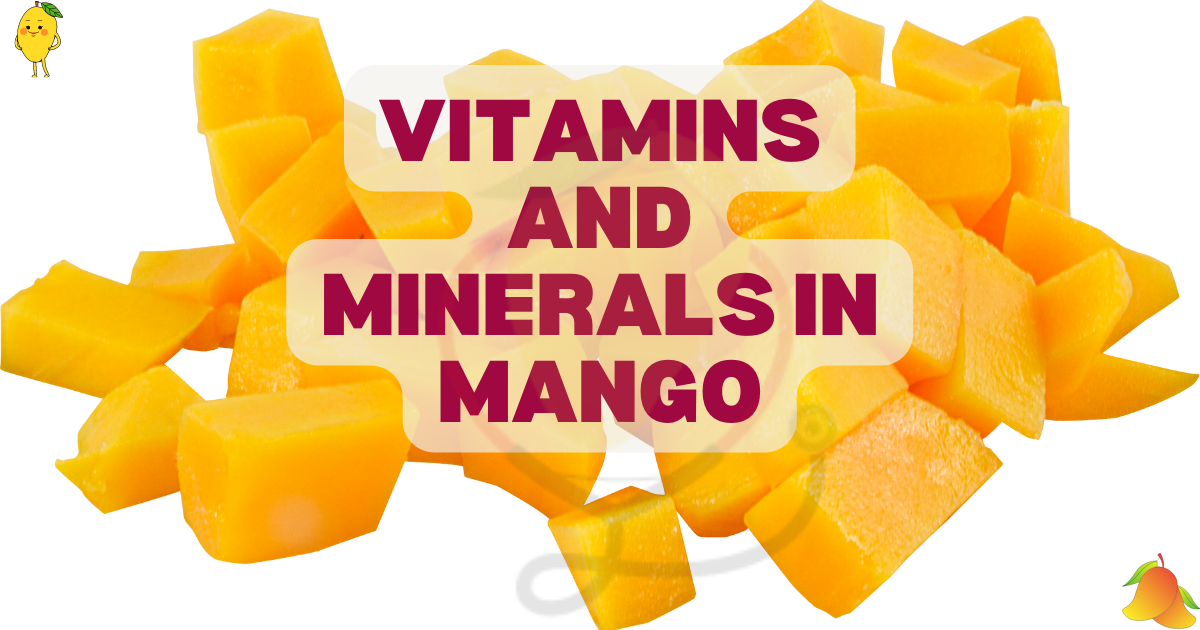Mangoes are super nutritious. Because there are 20 vitamins and minerals in mango.
Just 3/4 cup of mango can give you 50% of your daily vitamin C, 8% of your daily Vitamin A, and 8% of your daily vitamin B6.[1]
These nutrients in mango help keep your immune system strong.

In this article, we will explore the abundant nutritional value of mangoes and their potential health benefits.
So, grab a juicy mango slice and let’s delve into the world of vitamins and minerals in mango.
Vitamins in Mango

1: Vitamin A in Mangoes
Mangoes are an excellent source of Vitamin A, a crucial nutrient for maintaining healthy vision, promoting cell growth, and supporting the immune system. [2]
Just one cup of sliced mango provides approximately 35% of the daily recommended intake of Vitamin A.
2: Vitamin C in Mangoes
Known for its immune-boosting properties, Vitamin C is abundantly found in mangoes.[3]
This antioxidant vitamin helps in collagen production, aids in wound healing, and protects the body against harmful free radicals.
3: Vitamin E in Mangoes
Vitamin E is essential for maintaining healthy skin and acts as a powerful antioxidant that protects the body’s cells from damage. [4]
Mangoes contribute significantly to meeting the daily requirement of Vitamin E.
4: Vitamin K in Mangoes
Mangoes contain Vitamin K, which plays a vital role in blood clotting and bone health.
It also contributes to heart health by preventing calcium build-up in arteries.
5: Vitamin B6 in Mangoes
Vitamin B6 found in mangoes helps convert food into energy and supports brain development and function.
It also aids in the production of neurotransmitters that regulate mood.
6: Folate in Mangoes
Mangoes are a good source of folate, a B-vitamin important for cell division and DNA synthesis.
Folate is particularly crucial for pregnant women to prevent birth defects.
Minerals in Mango

1: Calcium in Mangoes
While mangoes are not as rich in calcium as dairy products, they still contribute a small amount to your daily intake, helping in maintaining strong bones and teeth.
2: Iron in Mangoes
Iron is essential for the formation of red blood cells and oxygen transportation throughout the body.
Including mangoes in your diet can help boost your iron levels naturally.
3: Potassium in Mangoes
Mangoes contain potassium, an electrolyte that aids in maintaining proper fluid balance, muscle function, and nerve signals in the body.
Mangoes are more than just a tropical treat, they are a nutritional powerhouse. Vitamins and minerals in mango that promote overall health.
From supporting the immune system to maintaining healthy skin and aiding digestion, mangoes offer a plethora of health benefits.
Incorporating this delectable fruit into your diet can be a simple and delicious way to boost your nutrient intake and enhance your well-being just because of vitamins and minerals in mango.
So, whether you enjoy them fresh, in smoothies, or as a tangy salsa, savor the goodness of mangoes and let their natural sweetness nourish your body and soul.
FAQs
Can mangoes help with weight loss?
While mangoes are low in calories and high in fiber, they can be a beneficial addition to a weight management plan. However, moderation is key, as excessive consumption may lead to an increase in calorie intake.
Are mangoes suitable for people with diabetes?
Mangoes contain natural sugars, so people with diabetes should consume them in moderation and consider their carbohydrate intake as part of their meal plan.
Can eating mangoes improve skin health?
Yes, the Vitamin A and E content in mangoes can contribute to healthy and glowing skin, promoting cell regeneration and protecting against skin damage.
Is it safe to eat mangoes during pregnancy?
Mangoes are generally safe during pregnancy and can provide essential nutrients like Vitamin A and folate. However, pregnant women should consult their healthcare provider for personalized dietary advice.
How do I know if a mango is ripe?
Ripe mangoes yield slightly when gently squeezed and emit a sweet aroma at the stem end. The color may also change from green to yellow, depending on the variety.

